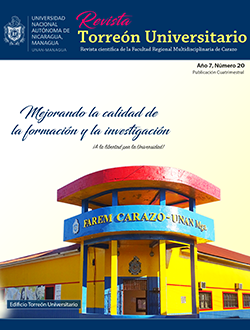Factors that affect the quality of life of the retiree
Keywords:
labor activity, social support, quality of life, centrality of the Retired, transition, workAbstract
Retirement involves a major restructuring of the functions that define the space of a person's life and, therefore, requires flexibility and adaptability to the new conditions. “Retirement can be seen as a transition that involves the extension, redefinition and change of roles. The extension of the time for retirement, it is an event that will allow a temporary process and that requires making decisions, implementing and carrying the consequences”. The centrality of work in relation to other elements, such as the family, in the definition of self-awareness is very different from one person to another, which implies that the transition to retirement may require different levels of self-restructuring.
The pre-retirement preparation stage coincides with a progressive clarification of attitudes about retirement and a planning of the time and manner of retirement from working life. At the time of retirement, the plans are more detailed, but the attitude tends to degenerate into anxiety and despair over the loss of their work activity. Of course, the retirement preparation phase has a different personal meaning depending on the individual history and the centrality of the work activity performed. Retirement means the loss of social contacts, but the degree of loss is still unclear, both in terms of the extension of the social network, as well as the quality of support received. Social support should be considered to distinguish the different sources (family, friends, etc.) and the different types of social support (emotional, instrumental, etc.) that affect the quality of life of the retiree considering the aspect of the physical activity, health, education, food, intellectual activity, psychosocial activity among other factors or important aspects in the retiree.
Downloads
Downloads
Published
Issue
Section
License
The authors who publish in this journal agree to the following terms.
- The author or authors of the articles, essays or research grant the National Autonomous University of Nicaragua, Managua (UNAN-Managua) the editing rights (copyright) of the submitted work, therefore the University has the exclusive right to publish the article for the entire copyright period.
- These copyrights/authors authorize Torreón Universitario Magazine and the University to edit and disseminate/publish the article in said Magazine, including printed and electronic reproduction, storage, retrieval and any other type of publication, and sources of secondary information as services. of summaries and databases, they also empower it to protect the article against unauthorized use for dissemination by printed or electronic media (PDF, HTML, EPUB, XML or others).
License for use of content
The magazine uses the Creative Commons Attribution-NonCommercial-NoDerivs 4.0 International License.
Under this statement:

This journal is licensed under a Creative Commons Attribution-NonCommercial-NoDerivatives 4.0 International License. It can be copied, distributed and transmitted publicly as long as the author and source are cited (Revista Torreón Universitario), it should not be modified or used for any commercial purpose. The full license can be found at http://creativecommons.org/licenses/by-nc-nd/4.0/.



